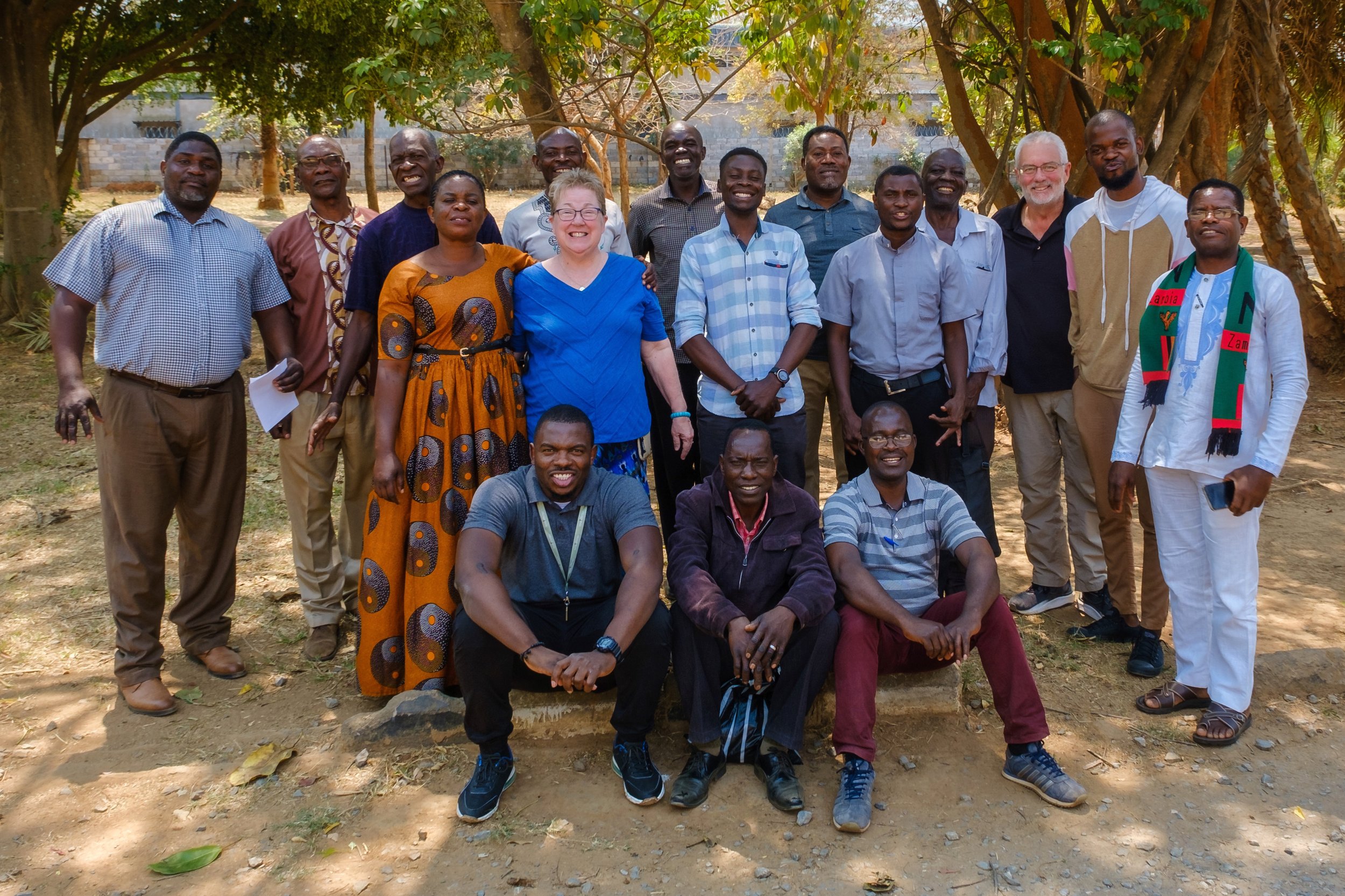"And when you pray, say...give us this day our daily bread." Jesus (Matthew 6)
/Our obsession with weight in the United States is remarkable. A casual watching of TV commercials should be enough to confirm the obvious. How to lose weight, how to look thin, how to impress the girl (or boy), body shapers, body contouring, body wash, body perfumes, body, body, body.
So, it was quite a revelation to spend time with people who are delighted with the possibility of being overweight. This makes perfect sense, of course, when getting more than one meal a day is touch and go, and that one meal consists only of lumps of nshima (corn meal), some tomato relish, a bit of greens, and perhaps one or two ounces of protein. It's not unusual for a fellow Zambian pastor to point at my less than flat stomach and remark emphatically, "Your wife has been good to you!"
One day, my dear friend, Gertrude, sent me into the village to pray with some people she was deeply concerned about. Gertrude can always be trusted, but my translator was new to me, so I was a bit hesitant. Nevertheless, Bertrams and I left Gertrude at the orphan center and began the slow trudge through the deep sand to the village. We hadn't gone too far when Gertrude called out loudly, "Bertrams. You must take it easy on Doug. He is fatter this year."
As we moved from hut to hut praying with people, we arrived at last to an old couple, well into their eighties. Their hut was poorly cared for with half of its thatched roof missing entirely. Nevertheless, the couple welcomed us with typical Lozi hospitality, offering us well worn wooden stools while they arranged themselves regally on two mats on the sand. The white-haired grandfather was missing one eye and his eye socket perpetually teared, leaving streaks down his dusty cheeks. The grandmother was quiet, lovely and dignified. They waited.
Betrams introduced us and our purpose, and the couple seemed pleased we had come. We discovered that their children had died of HIV/Aids, leaving them vulnerable and dependent on others. Their hut, consequently, was being generously provided for them by a fellow church member, but one who could not afford its upkeep. Thus, the roof.
After we had talked awhile and heard about their daily struggles, I asked them, "How is your relationship with God in the midst of this?" Betrams was hesitant to translate my question and urged me not to ask it. He felt it was far too personal. Even prying. I pressed him to ask them. Three times. He finally, but grudgingly, did so.
The grandfather expressed his disappointment and bitterness, especially regarding his eye and what had so far been a two year wait for a visiting eye doctor. He was discouraged and asked me to pray that this year the doctor would come. When I turned to the grandmother, she looked at me for a few moments, and then in a strong, quiet voice said, "My relationship with God is better than it's ever been. Each morning I pray for food and most days He feeds me."
Deeply touched and humbled, I wonder to this day if I should have asked this woman to pray for me. Her dependence and trust on God was so deep, so strong, and so matter of fact that it challenged me to my core, and still does. Still, I was the pastor, so I prayed. And they were pleased. And, our parting was warm.
The drive to Mwanamatuku always amazes me. By the time you're twenty miles into the bush, the road, such as it is, is nothing more than a walking path in places. The first time I went to Mwanamatuku I was riding deep into the bush with a Scottish missionary who suddenly pulled his Land Cruiser to a complete stop. Looking around perplexedly, he exclaimed, "I've lost the road!" Laughing out loud, I retorted, "What road? There hasn't been a road for the last two miles!" Unfazed, he looked intently into the grass and bushes for two or three minutes while I anxiously waited, then suddenly shifted into first gear and plunged boldly ahead. As we crested a hill, a footpath miraculously appeared below us. I couldn't believe it. Twenty minutes later, we were worshipping with our Mwanamatuku friends.
One year, my wife, Abby, and I were driven by this same missionary to Mwanamatuku along with our translator, a Mr. Museisei, whose countenance was surprisingly downcast. He seemed familiar to me, but I just couldn't place him.
Despite his countenance, he was a brilliant translator. Halfway through my sermon, we were working so beautifully together that it was exhilarating. I am an animated preacher, especially in Zambia, and Mr. Museisei became animated with me. Later in worship, I was delighted to see him dancing with abandon, and was even more delighted following worship when he said, "Your sermon has given me joy. I thought God had forgotten me!"
The church then lovingly treated the three of us to a delicious village chicken lunch. As we ate and chatted a bit, it slowly dawned on me that I did know this man. Several years before, I had visited this retired English teacher at his hut following the tragic death of his adult daughter who was a police officer in the capitol city of Lusaka. As I reminded him about this, he paused and looked intently at me. Slowly, his eyes widened, he smiled and happily exclaimed, "I didn't recognize you. You are much rounder this year!"
This Thanksgiving, those of us in “rounder” cultures have much for which to be grateful. Abby and I are incredibly grateful for our family, friends, and, yes, for food. And, we’re grateful for you. Because of your generosity and prayers, we get to follow Jesus and do what we love. So, thank you! And, remember, where we go you go.

